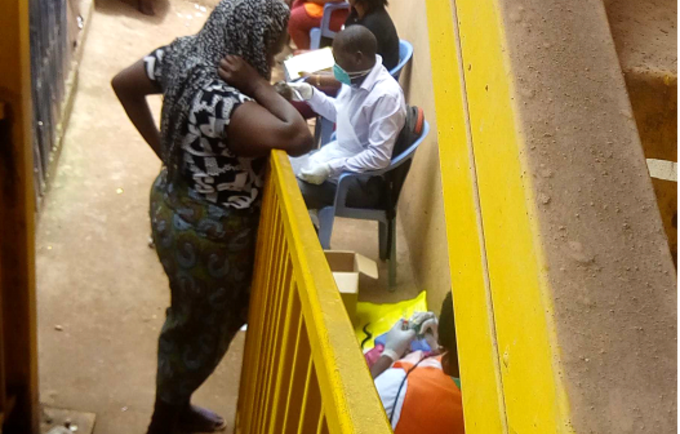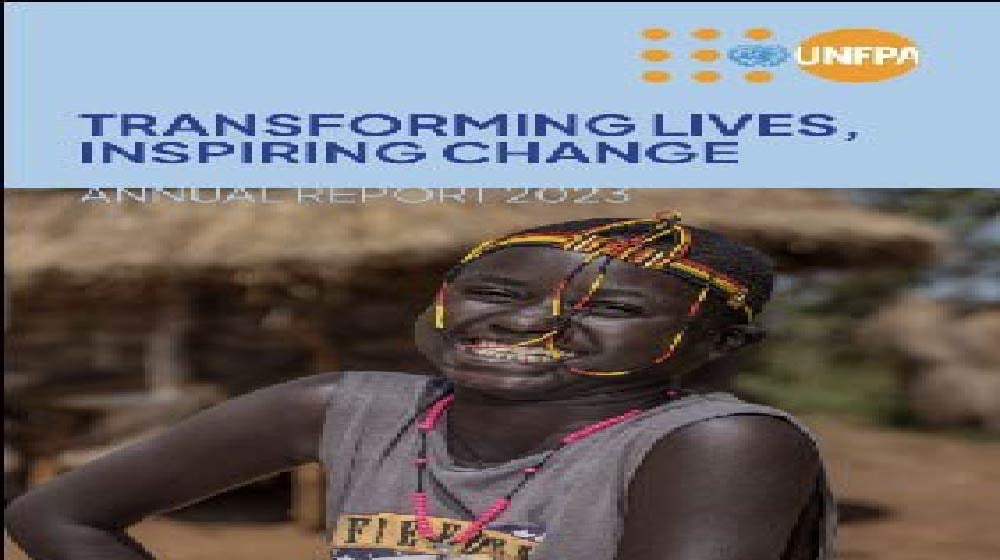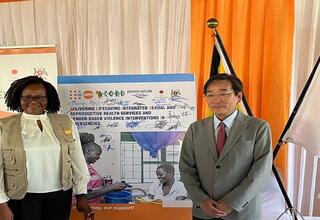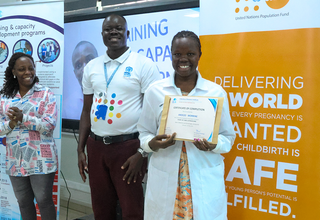“Never in my life had I been in a situation where I couldn’t get simple medical treatment,” This is how 25 year old Fifie, (nickname), a commercial sex worker in Kampala described the challenge of accessing health services at the start of the COVID 19 lockdown in Uganda.
Fifie had always known the importance of using condoms to protect herself from HIV infection and unwanted pregnancy. But the lockdown made this hard for her. She went twice to Kisenyi Health Centre IV, a public health facility, but failed to access services because there were no health workers to attend to her needs following the ban on public transport.
For commercial sex workers and other most-at-risk populations (groups, who by the nature of their work or social life are at high risk of acquiring HIV), accessing health services is challenging because of the stigma they face. The COVID-19 lockdown only made this worse.
“Our friendly service points were closed. A number of times during this lockdown, I have failed to get condoms,” she said.
For Fifie, getting into commercial sex work was her way of coping with a divorce from her husband of five years that left her a single mother and sole provider for her two siblings.
“Because of the lockdown, there are few clients; many of them ask for unprotected sex. It is hard to negotiate for safe sex because the clients will simply go to my competitors. I had used up all my savings yet I had to feed my child and siblings. I ended up having unsafe sex,” she tearfully recalled her experience and her fear of getting infected with HIV or getting an unwanted pregnancy.
But help was on the way for Fifie.
In early May 2020, two months after the lockdown was imposed, Fifie was reached by a community mobiliser from AIDs Information Centre (AIC) a UNFPA Implementing Partner, who told her the AIC mobile clinic team was offering free door- to- door services. “Once I heard about this, I decided not to move anywhere for fear of losing this golden opportunity. I kept on peeping outside the house and asking my peers whether the medical teams had arrived” Fifie said.
Mobile clinics
Door -to- door (code named Do-2-Do) is an innovative strategy that AIC, with support from UNFPA, adopted to respond to the challenges faced by vulnerable populations, women, adolescents and young people in accessing sexual and reproductive health services during the COVID-19 lockdown.
The services are provided by a team composed of a clinician or nurse, laboratory technician, a counsellor and a peer mobiliser. On a scheduled date, the mobiliser moves from house to house and informs the household members about the services to be offered and the schedule. The health workers then set up a temporary clinic in the neighbourhood to provide a comprehensive package of free services including HIV Testing and Counselling, Gender based Violence Screening and Management, Sexually transmitted Infections (STI) Screening and Management, Family Planning services, Antenatal Care and referral.
On the veranda of her shared house in Kisenyi, Fifie was tested for HIV, screened for STIs, counselled and given a contraceptive injection (Depo-Provera-). Fortunately, she was HIV negative but was diagnosed with an STI and given treatment along with a box of condoms.
“I’m happy to have received treatment. My hope is restored, I’m now more prepared,” Fifie said.
The Do-2-DO initiative is running in the five divisions of Kampala and in the districts of Bundibugyo, Kiryandongo, Gulu, Yumbe, Kaberamaido, Amuria, Pader, Moroto, Kaabong, Abim, Kotido, Napak and Nakapiripirit.
The initiative is implemented with support from UNFPA under the SIDA funded Joint UN Program on GBV & SRHR and delivered in partnership with Kampala City Council Authority and Safe-Boda, and through community structures such as Peer Leaders, Role Model Men, Village Health Teams, Mentor Mothers, Networks of most at risk Populations and District Health and Community Development Offices.
So far 71,000 women and girls have received a range of Sexual and Reproductive Health and GBV services and 66,000 free condoms have been distributed.
Compiled by Tadeo Tumusiime and Monja Minsi, AIDS Information Centre-Uganda




